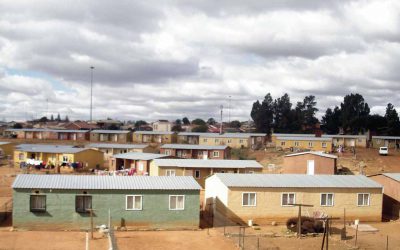The ANC and previous regimes have all seen rural areas as more deserving of attention and resources than cities, making it nearly impossible to talk seriously about urban policy Since the end of apartheid a central issue of democratic governance should have been to...

David Everatt
Professor David Everatt is Head of School, Wits School of Governance. He is the former executive director of CASE, a founding partner of Strategy & Tactics (winner of two Impumulelo Black Empowerment awards), and founding director of the Gauteng City-Region Observatory. He was the chief evaluator of the South African Constitutional Assembly between 1995 and 1997, and has researched issues from poverty and inequality to urbanism to class formation and voting behaviour. He was vice-president (sub-Saharan Africa) for the “Sociology of Youth” committee of the International Sociological Association for 14 years, and now sits on their advisory board, and serves on the board of the Ahmed Kathrada Foundation.

David Everatt
Professor David Everatt is Head of School, Wits School of Governance. He is the former executive director of CASE, a founding partner of Strategy & Tactics (winner of two Impumulelo Black Empowerment awards), and founding director of the Gauteng City-Region Observatory. He was the chief evaluator of the South African Constitutional Assembly between 1995 and 1997, and has researched issues from poverty and inequality to urbanism to class formation and voting behaviour. He was vice-president (sub-Saharan Africa) for the “Sociology of Youth” committee of the International Sociological Association for 14 years, and now sits on their advisory board, and serves on the board of the Ahmed Kathrada Foundation.
Sidelined by policymakers
The ANC and previous regimes have all seen rural areas as more deserving of attention and resources than cities, making it nearly impossible to talk seriously about urban policy Since the end of apartheid a central issue of democratic governance should have been to...








